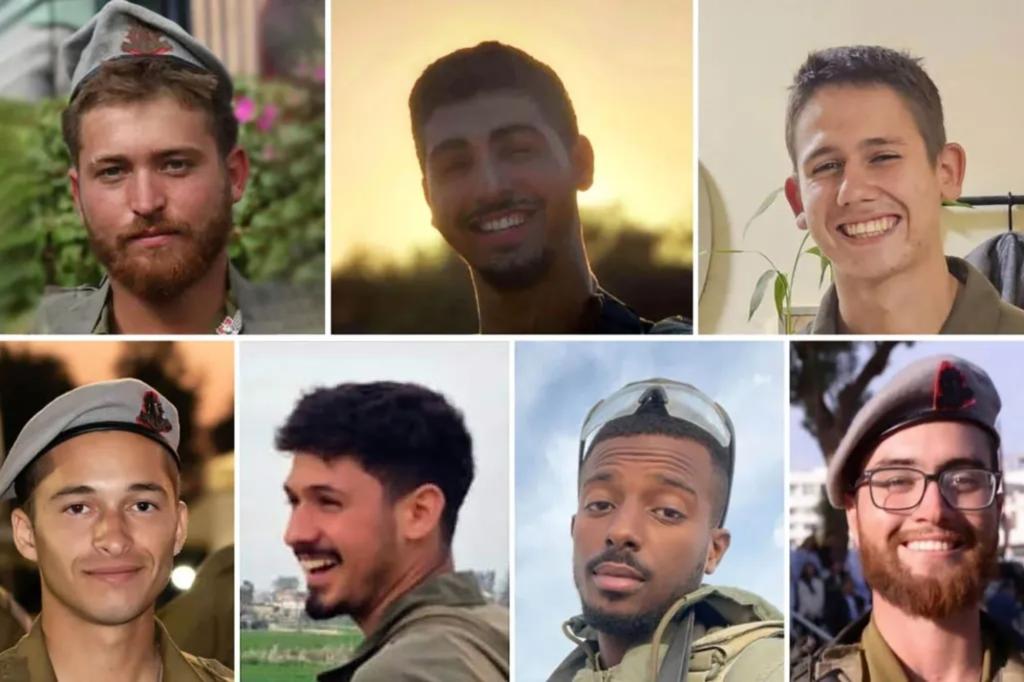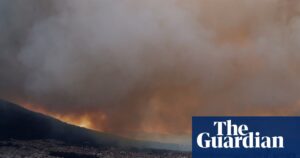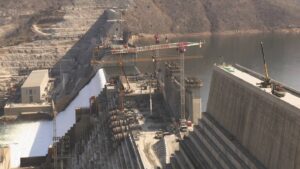
In a devastating escalation of violence, seven Israeli soldiers were killed in a Hamas attack in Gaza, marking one of the deadliest incidents for the Israeli military in recent months. The attack occurred on Tuesday as the soldiers patrolled the southern city of Khan Younis, according to an announcement made by the Israel Defense Forces (IDF) on Wednesday.
The soldiers were traveling in an armored vehicle when a Hamas operative attached an explosive device to it, resulting in a catastrophic explosion. The IDF reported that helicopters and rescue teams were immediately dispatched to the scene, but efforts to save the soldiers were unsuccessful.
Victims and Immediate Response
The fallen soldiers have been identified as Lt. Matan Shai Yashinovski, 21; Staff Sgt. Ronel Ben-Moshe, 20; Staff Sgt. Niv Radia, 20; Sgt. Ronen Shapiro, 19; Sgt. Shahar Manoav, 21; Sgt. Maayan Baruch Pearlstein, 20; and Staff Sgt. Alon Davidov, 21. The attack has been claimed by Hamas, further intensifying tensions in the region.
An IDF investigation revealed that the explosive was planted on the Puma armored combat engineering vehicle as it moved through Khan Younis. The resulting blast set the vehicle ablaze, leading to the tragic deaths of all seven soldiers.
“Heroic soldiers fell in the battle to defeat Hamas and free our hostages in the southern Gaza Strip,” Israeli Prime Minister Benjamin Netanyahu stated, offering condolences to the bereaved families.
Political and Military Reactions
Prime Minister Netanyahu expressed profound sorrow over the loss, highlighting the ongoing conflict’s toll on the Israeli military. Since the beginning of the current hostilities in Gaza, 860 Israeli soldiers have lost their lives, underscoring the conflict’s deadly nature.
Netanyahu’s statement emphasized the soldiers’ bravery and commitment to their mission. “On my behalf and on behalf of the citizens of Israel, I send my deepest condolences to the families who lost their dearest loved ones, and I share with them in their unbearable grief at this difficult time,” he said.
Meanwhile, the charred remains of the armored vehicle were removed from Gaza, serving as a grim reminder of the ongoing violence.
Broader Context and Historical Parallels
This attack is part of a broader pattern of violence that has characterized the Israeli-Palestinian conflict for decades. The use of improvised explosive devices (IEDs) by militant groups like Hamas has been a recurring tactic, reflecting the asymmetric nature of the conflict.
Historically, such attacks have often led to increased military responses from Israel, including airstrikes and ground operations. The current situation is no different, with Israeli forces likely to intensify their operations in response to the attack.
According to a recent report, “Israel continues to state it only targets militants, and blames Hamas for sheltering in civilian areas.”
Future Implications and Ongoing Conflict
The deadly attack in Khan Younis is expected to have significant implications for the ongoing conflict. It may lead to increased military operations by Israel in Gaza, as well as heightened security measures along the border.
In a separate incident on the same day, two Israeli soldiers were wounded, one seriously, when an RPG was fired at an armored bulldozer in the Khan Younis area. Hamas claimed responsibility for this attack as well, stating it had ambushed the soldiers as they sought cover in a residential building.
The cycle of violence continues to pose a significant challenge to peace efforts in the region. As both sides brace for potential escalations, the international community watches closely, urging restraint and dialogue.
As the conflict persists, the loss of life on both sides remains a stark reminder of the urgent need for a lasting resolution. The world awaits the next steps in this deeply entrenched conflict, hoping for a breakthrough that could end the cycle of violence.





